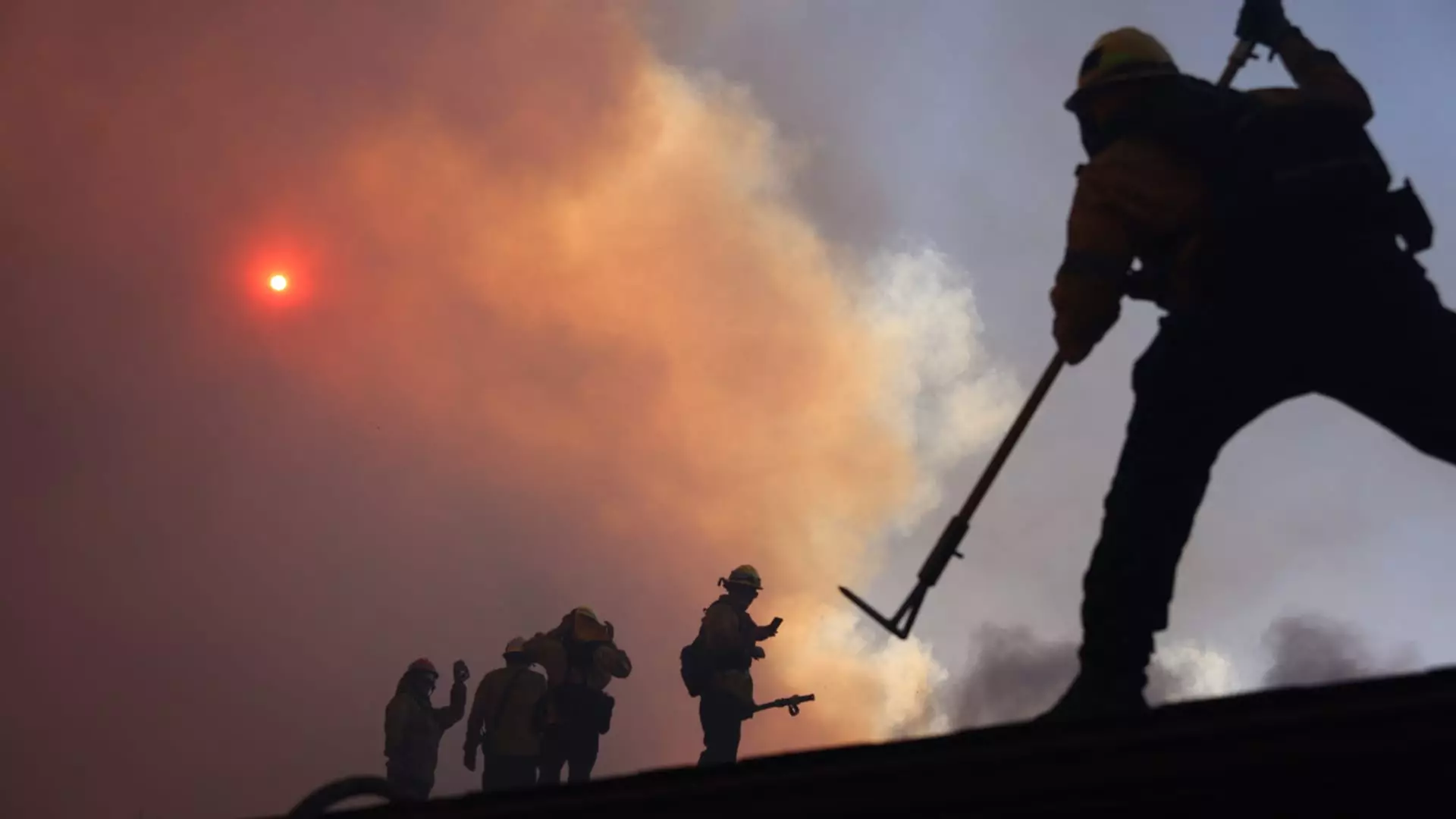In recent days, Southern California, particularly the Los Angeles area, has faced unprecedented devastation due to rampant wildfires. The tragedies of loss and destruction are overwhelming; as of Thursday morning, local reports confirmed the tragic deaths of at least five individuals. Furthermore, the fires have forced over 100,000 residents to evacuate their homes, and nearly 2,000 structures, including homes and businesses, have been reduced to ashes. As the situation unfolds, the nation and indeed the world are eager to offer assistance. However, it is crucial for potential donors to be vigilant, as opportunistic fundraising scams often emerge during times of crisis.
The frantic response to disasters can sometimes lead to hasty decisions, particularly when it comes to donating funds and supplies for relief efforts. As an example of this urgency, well-meaning individuals may inadvertently fall prey to scams masquerading as legitimate charities, a scenario that becomes increasingly likely in the wake of disasters like the current wildfires. Charity Navigator, an esteemed third-party evaluator of nonprofit organizations, has taken the initiative to sift through the plethora of organizations seeking donations, compiling a list of nonprofits that are effectively engaged in relief and recovery efforts in the Pacific Palisades and surrounding regions.
Michael Thatcher, the CEO of Charity Navigator, emphasizes that the organizations identified in their assessment have demonstrated not only efficiency but also a substantial commitment to supporting impacted communities and first responders. Their list includes various organizations like the American Red Cross, California Community Foundation, and the Center for Disaster Philanthropy, which are actively working on the ground to provide immediate assistance.
While it is heartening to witness the outpouring of support for wildfire victims, the urgency can sometimes cloud judgment. Laurie Styron, the executive director of CharityWatch, warns against impulsive donations. Instead of contributing to individual crowdfunding campaigns, which may lack accountability, donors are encouraged to direct their support to established charities that have the resources and infrastructure in place to distribute aid effectively. Direct involvement by organizations that are experienced in disaster response can ensure that donations are utilized in a manner that is equitable and beneficial to all affected individuals.
This careful approach is especially paramount given the increased occurrences of fraudulent activities that typically arise in the aftermath of disasters. Styron further advises that potential donors take their time to research charities before giving. A cautionary note about impulsiveness rings true; hasty decisions may lead to supporting organizations that do not have a clear plan of action or the required expertise in handling such specific disaster scenarios.
In light of the unprecedented challenges presented by the wildfires, organizations like the Better Business Bureau’s Wise Giving Alliance are offering actionable guidelines for prospective donors. They suggest that individuals verify the accreditation of charities before making donations. Moreover, vigilance when using crowdfunding platforms becomes even more critical; donors should familiarize themselves with how these sites operate, understand how postings are vetted, and be aware of any potential transaction fees involved.
In addition to verifying the legitimacy of a charity, it is vital for donors to scrutinize the messages and appeals for help. A vague or ambiguous relief appeal may indicate a lack of a structured approach to aid distribution, further highlighting the necessity of due diligence in charitable giving. By being proactive rather than reactive, individuals can help ensure that their contributions make a meaningful impact amidst the chaos and suffering caused by wildfires.
As the wildfires rage on and their toll becomes increasingly evident, the urgency for support remains palpable. However, the empathetic desire to help must be tempered with caution and responsibility. By focusing on reputable, well-established charities, and by carefully assessing how funds will be used, donors can play a significant role in the recovery process. As Michael Thatcher poignantly remarks, the primary goal is to make a meaningful difference in the lives of those devastated by this disaster. Donors can indeed be the beacon of hope in this trying time, provided they take the necessary steps to ensure their goodwill translates into tangible support for those in need.

